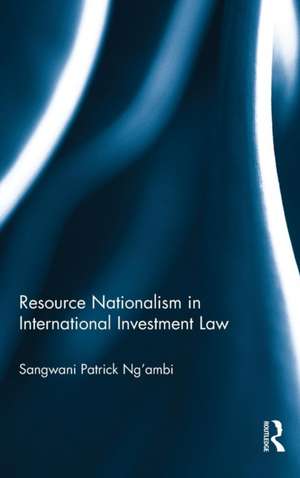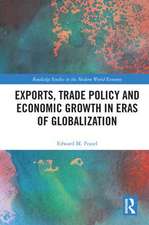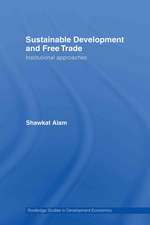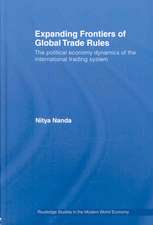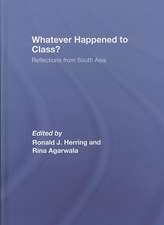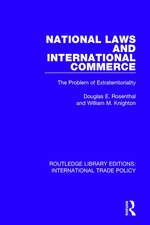Resource Nationalism in International Investment Law
Autor Sangwani Patrick Ng’ambien Limba Engleză Hardback – 23 noi 2015
Arguing that it is necessary to have some form of flexibility in concession agreements while still offering protection of the legitimate expectations of the investor, Resource Nationalism in International Investment Law proposes the insertion of renegotiation clauses in order to foster flexible relationships between the investor and the host State. Such clauses bind the parties to renegotiate the terms of the contract, in good faith, when prevailing circumstances change. However these clauses can also prove problematic for both State and investor due to their rigidity. Using Zambia as a case study, it highlights the limitations of the efficient breach theory to emphasise the need for contractual flexibility.
| Toate formatele și edițiile | Preț | Express |
|---|---|---|
| Paperback (1) | 410.46 lei 6-8 săpt. | |
| Taylor & Francis – iun 2018 | 410.46 lei 6-8 săpt. | |
| Hardback (1) | 1053.95 lei 6-8 săpt. | |
| Taylor & Francis – 23 noi 2015 | 1053.95 lei 6-8 săpt. |
Preț: 1053.95 lei
Preț vechi: 1285.31 lei
-18% Nou
Puncte Express: 1581
Preț estimativ în valută:
201.74€ • 219.21$ • 169.57£
201.74€ • 219.21$ • 169.57£
Carte tipărită la comandă
Livrare economică 21 aprilie-05 mai
Preluare comenzi: 021 569.72.76
Specificații
ISBN-13: 9781138951587
ISBN-10: 1138951587
Pagini: 202
Dimensiuni: 156 x 234 x 18 mm
Greutate: 0.43 kg
Ediția:1
Editura: Taylor & Francis
Colecția Routledge
Locul publicării:Oxford, United Kingdom
ISBN-10: 1138951587
Pagini: 202
Dimensiuni: 156 x 234 x 18 mm
Greutate: 0.43 kg
Ediția:1
Editura: Taylor & Francis
Colecția Routledge
Locul publicării:Oxford, United Kingdom
Public țintă
PostgraduateCuprins
1. Introduction 2. Foreign Direct Investment, the Risks and Mitigation of those Risks 3. The Effect of Stabilization Clauses 4. An Efficient but Inflexible Compensation Regime Under International Investment Law 5. A Case Study of the Resource Nationalism Cycle in Zambia 6. Flexibility Through Renegotiation Clauses 7. Conclusion
Descriere
Foreign direct investment in the natural resource industries is fostered through the signing of concession agreements between the host State and the investor. However, such concessions are also susceptible to alteration by the host State, requiring the use of stabilization clauses which constitute an undertaking on the part of the host State, that they will not take any administrative or legislative action that would adversely affect the rights of the investor. This book argues that the current position necessitates some form of contractual flexibility while still offering protection of the legitimate expectations of the investor and outlines the need for renegotiation clauses in the concession agreements. Using Zambia as a case study, it shows the limitations of the efficient breach theory to emphasise the need for contractual flexibility.
